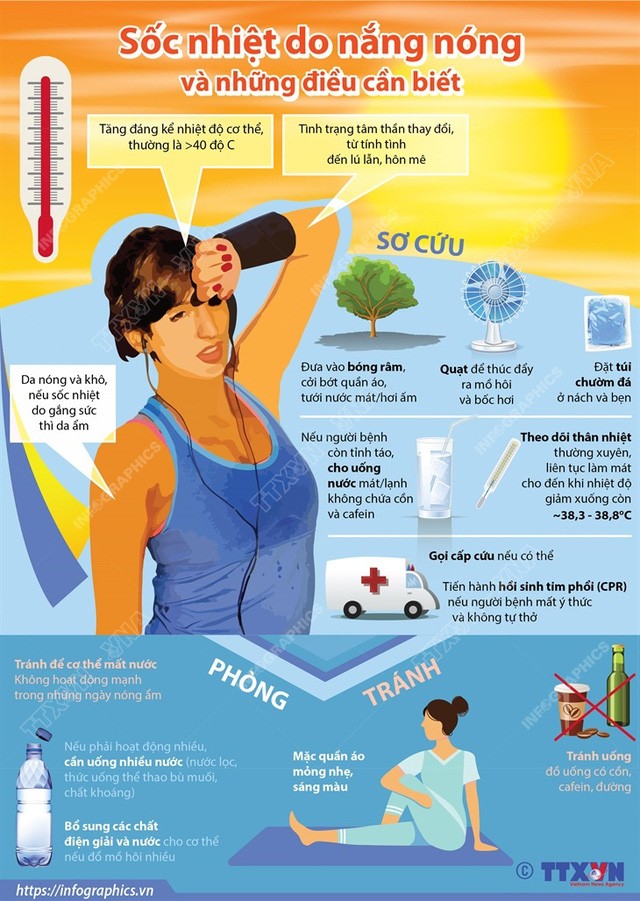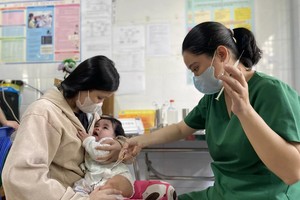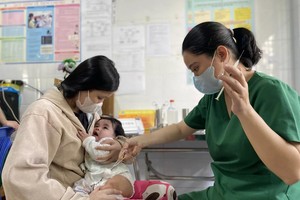

Northern and central provinces are presently are enduring dangerous heat waves with temperatures reaching up to 40 Celsius degrees in many places, even 42-43 Celsius degrees in some areas.
Major hospitals in Hanoi such as Bach Mai, Saint Paul, Thanh Nhan, Central Pediatrics, Gerontology, Viet Xo Friendship have seen an increase in the number of outpatients who visit these hospitals for treatment of heat-related illnesses.
Worse, there has been an increase of 15 percent of inpatients and outpatients in infirmaries in the northern province of Hoa Binh, Son La, Ha Nam, and Ninh Binh simultaneously despite tightened regulation to prevent the coronavirus spread.
According to some medical experts, prolonged hot weather causes fatigue, heatstroke, even fainting, and stroke. Moreover, hot weather also caused insomnia amongst many people. The changing weather patterns are conducive to viruses, bacteria proliferation, and the spread of the coronavirus.
Heat-related diseases are mainly respiratory diseases and diseases linking to the digestive tract. Elderly people with a history of heart disease, high blood pressure, or diabetes easily get an illness, extreme heat events can be dangerous to their health – even fatal.
Those who have to work outdoors or in hot areas and unventilated working environments should be taken to prevent heatstroke, sunburn, and heat exhaustion. To prevent the above diseases, it is necessary to pay attention to measures to protect the skin, protect the body from hot sun; supplement nutrients for the body to have resistance; Make sure to drink enough water to prevent dehydration
Outdoor workers should take heed of the risk of sunburn, heat stroke, and heat exhaustion; they must take steps to prevent heat stress including reducing exposure to the sun wherever possible, drinking lots of water, wearing the right clothes, and taking rest breaks in cool, well-ventilated areas.
























